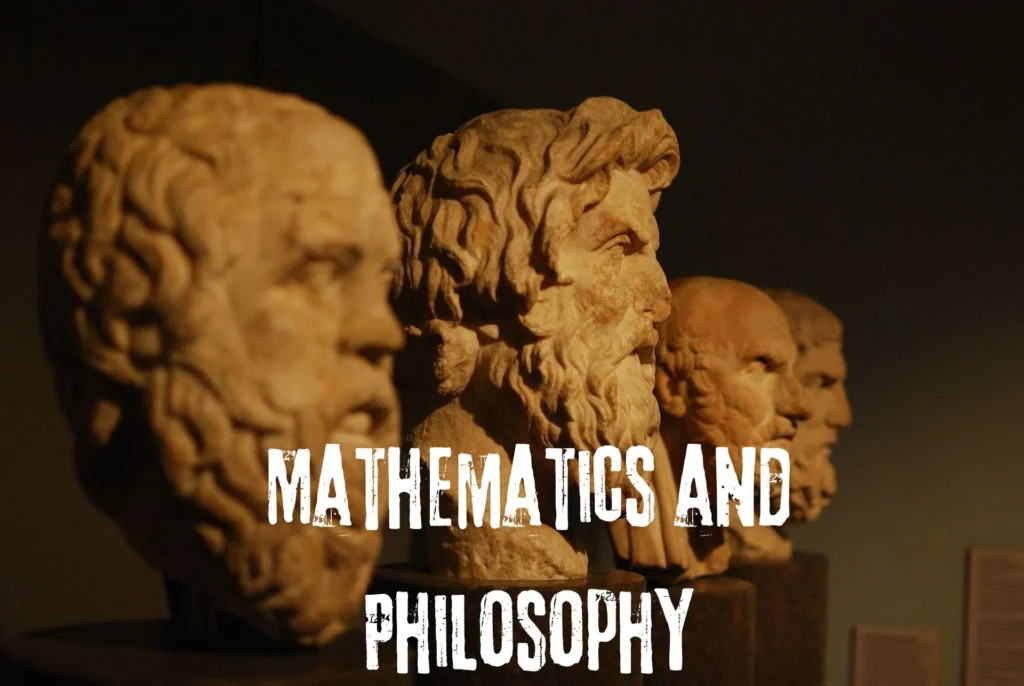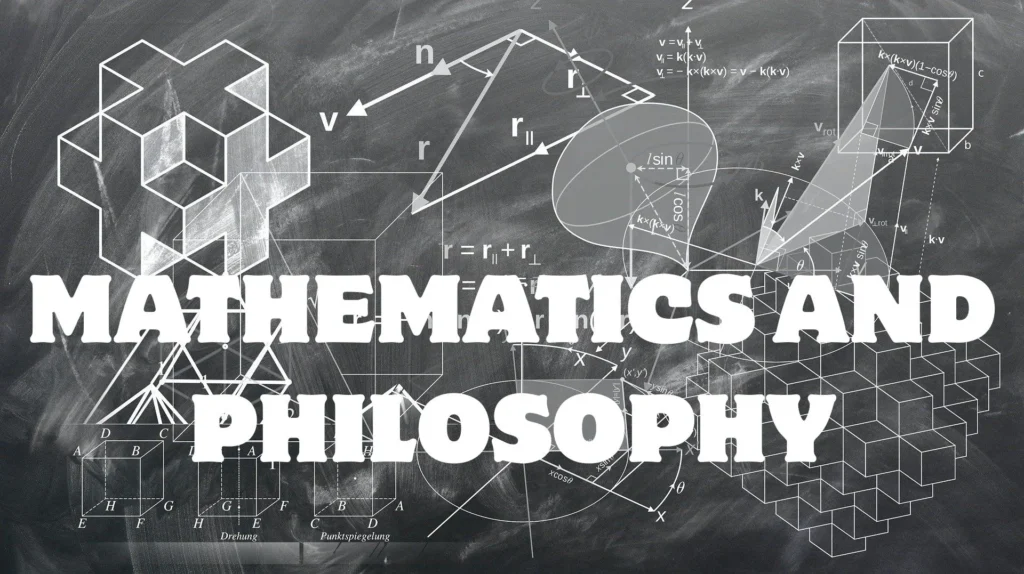Mathematics and Philosophy
When I first explored Mathematics and Philosophy at Oxford University, I found the mix of mathematical knowledge and philosophical training especially rewarding. The course encourages you to tackle quantifiable problems while also learning to analyse issues and challenge assumptions, which builds a strong background for both graduate study and professional growth. Over time, I realized how logic works as a natural bridge between the two disciplines, and how modules like the Philosophy of mathematics deepen understanding. With more than 70 full-time members in the Philosophy Faculty and about 450 undergraduates admitted each year, students enter a truly lively community. The Mathematics Department in the Andrew Wiles Building also offers a broad choice of topics, especially by the fourth year, with world-class research groups that make the learning experience even more inspiring.
Course Overview
| UCAS Code | GV15 |
| Typical Offer | AAA, with A*s in Mathematics and Further Mathematics where available |
| Length of Study | 3 years for the BA, or 4 years for the MMathPhil |
Subject Requirements
| Essential | Mathematics |
| Strongly Recommended | Further Mathematics |
| Helpful but Not Required | None |
Additional Requirements
| Admissions Test | MAT |
| Written Work | Not required |
Admissions Data
| Interview Rate | 34% |
| Offer Rate | 10% |
| Annual Intake | 16 students |

Typical week
In the first two years of the Mathematics and Philosophy course at Oxford University, students typically attend up to ten lectures per week, accompanied by two to three tutorials. During years three and four, the workload shifts to up to eight lectures weekly, with students completing the equivalent of eight units per year. Weekly tutorials focus on philosophy, while mathematics is covered in fortnightly classes. Tutorials are small, usually accommodating two to four students per tutor, though class sizes may range from eight to twelve students, with some popular papers attracting larger groups.
Instruction is primarily delivered by experienced tutors and academic staff, many of whom are recognized leaders in their fields with extensive research and teaching experience. Additionally, postgraduate students at the doctoral level may also contribute to teaching, offering further guidance and insight. This combination of lectures, tutorials, and classes ensures a dynamic and supportive learning environment that develops both mathematical and philosophical skills.
Course structure
Students in the Mathematics and Philosophy course at Oxford University can pursue either a three-year BA or a four-year MMathPhil, with the decision to continue to the fourth year made at the end of the third year. Mathematics units are drawn directly from the single-subject Mathematics course, maintaining the same high admission standard. The compulsory core includes pure mathematics alongside philosophy units, often shared with other disciplines. In the first year, all units are compulsory. During the second and third years, students study core mathematics and philosophy, as well as bridge papers covering topics such as the philosophy of mathematics, foundations, logic, and set theory, with additional optional units available. By the fourth year, students have full flexibility to focus on all mathematics, all philosophy, or a combination of both.
Read More : How to get Oxford University [Get info here]
Year 1 – Courses & Assessment
| Indicative Courses | Assessment |
|---|---|
|
Mathematics Algebra – building strong algebraic foundations Analysis – introducing rigorous problem-solving techniques Calculus – developing conceptual understanding of change and motion Probability – foundational concepts for statistical reasoning Philosophy General Philosophy – key concepts and critical thinking Frege: Foundations of Arithmetic – logical foundations of mathematics Philosophical Topics in Logic and Probability – exploring reasoning and probability in philosophical contexts |
First University examinations: five compulsory written papers assessing both mathematical and philosophical understanding, designed to develop analytical precision and critical thinking |
Year 2 & 3 – Courses & Assessment
| Indicative Courses | Assessment |
|---|---|
|
Mathematics Core Pure Mathematics: Algebra, Metric Spaces, Complex Analysis Foundations: Set Theory, Logic Intermediate Mathematics Options Philosophy Knowledge and Reality or Early Modern Philosophy Philosophy of Mathematics Further Philosophy Papers |
Final University Examinations – Part A (Year 2): Two written papers on pure mathematics core and two written papers on mathematics options Final University Examinations – Part B (Year 3): Four 90-minute mathematics exams, three three-hour philosophy papers, plus either two further 90-minute mathematics exams or one additional three-hour philosophy paper (or equivalent) |
Year 4 – Courses & Assessment
| Indicative Courses | Assessment |
|---|---|
|
Mathematics – Advanced Options Axiomatic Set Theory Elliptic Curves Gödel’s Incompleteness Theorems Infinite Groups Model Theory Stochastic Differential Equations Optional Mathematics Dissertation Philosophy – Advanced Options Advanced Philosophy Papers Optional Philosophy Thesis Note: The options listed above are illustrative and may change. A full list of current options is available on the Mathematics website and the Philosophy website. |
Final University Examinations – Part C: Philosophy subjects include a 5000-word essay. Students typically study three philosophy subjects, eight mathematics units, or a mixture of both disciplines, with assessment designed to evaluate both analytical and critical thinking skills. |
Academic requirements
| Qualification | Requirement |
|---|---|
| A-levels |
A*A*A with the A*s in Mathematics and Further Mathematics (if available). If Further Mathematics is not offered: either A*AA with A* in Mathematics and an A in AS-level Further Mathematics, or A*AA with A* in Mathematics. |
| Advanced Highers | AA or AAB |
| International Baccalaureate (IB) | 39 points including core points with 766 at Higher Level (7 must be in Higher Level Mathematics) |
| Other Equivalent Qualifications | View information on other UK qualifications and international equivalents |
Your academic results are evaluated in the context in which they were achieved, ensuring a fair and balanced assessment.
Subject requirements
Essential: Candidates must have Mathematics at A-level (A*), Advanced Higher (A), Higher Level in the IB (score 7), or an equivalent qualification.
Recommended: Studying Further Mathematics is strongly advised to strengthen preparation.
Most students applying for Mathematics and Philosophy have completed both Mathematics and Further Mathematics at A-level or an equivalent qualification. Any practical components in science A-levels included in your offer must be successfully passed. Additionally, applicants whose first language is not English are required to meet Oxford University’s English language standards.

Applying
All applicants are required to follow the official application process outlined on the Oxford University “Applying to Oxford” pages. The information below provides detailed guidance specifically for students applying to the Mathematics and Philosophy course.
| Admissions Test | Details |
|---|---|
| Test Name | MAT (Mathematics Admissions Test) |
| Test Dates | 22 & 23 October 2025 |
| Registration Window | 18 June – 19 September 2025 (6pm BST) |
| Booking Period | 18 August – 26 September 2025 (6pm BST) |
All applicants are required to take the Mathematics Admissions Test (MAT) as part of their application to the course. Complete guidance on how to register, arrange, and prepare for the test is available on the official MAT test page.
Written work
Applicants for this course are not required to submit any written work as part of their application.
What are tutors looking for?
During the philosophy interview, tutors look for your ability to think critically and analytically, tackling abstract questions and defending a viewpoint with clear, reasoned arguments.
In mathematics, you may encounter problems you haven’t seen before. The focus is not on recalling what you’ve learned, but on how you approach and respond to new challenges. Tutors are interested in your problem-solving skills and how you consider different approaches.
For full details on the selection criteria, visit the Mathematics website and Philosophy website.
Careers
Graduates of Mathematics and Philosophy at Oxford University pursue careers across a wide range of fields, both in the UK and internationally. Common pathways include software development, teaching, research, public sector roles such as the Civil and Diplomatic Services, and journalism. Around 30% of graduates continue with further academic study.
For example, Katherine, a former graduate, worked at the Bodleian Libraries. She found that the logical problem-solving skills and attention to detail developed through her studies were invaluable when addressing technical challenges and completing a second graduate degree. The rigorous experience of studying both mathematics and philosophy, along with quickly learning and applying new knowledge, gave her the confidence to excel in diverse fields, including legal and medical research libraries.
Fees
Oxford University is committed to ensuring that financial circumstances do not prevent academically qualified students from studying here. To support this, the university offers one of the most generous financial support packages available to UK students, which may also be supplemented by additional support from your college.
Fees: For full-time Home undergraduate students, the annual course fee is set at the government cap, currently £9,535 for 2025/26. Overseas students can expect an annual course fee of £47,570. These fees are a guide for courses starting in 2026 and may be subject to annual increases. For detailed information about fee eligibility and updates, students should consult the fee status webpage and the course fees page, along with guidance on likely increases to fees and charges.
Living Costs
Living costs at Oxford University may be lower than you expect, thanks to world-class resources and excellent college provisions that help manage expenses.
For the academic year starting in 2026, living costs are estimated between £1,405 and £2,105 per month. The academic year consists of three eight-week terms, so students typically need to budget for around six months in Oxford, though planning for a nine-month period is recommended to cover essential expenses during holidays. For the most up-to-date guidance and detailed budgeting advice, please visit the Living Costs webpage.
Financial Support
For Home students, including UK, Irish nationals, and other eligible students with UK citizens’ rights, tuition fees can be fully covered through a government loan for first undergraduate degrees. This means you won’t need to pay course fees upfront. In 2026, Oxford offers one of the most generous bursary programs in the UK for Home students from families with incomes around £50,000 or less, with additional support for households earning £32,500 or below. Eligible students may also receive government assistance for living costs, depending on residency status.
For EU, EEA, and Swiss nationals starting courses from 1 August 2021 onward, student finance is available if they have UK citizens’ rights, such as pre-settled or settled status, or if they are Irish citizens covered by the Common Travel Area.
Students from the Channel Islands and Isle of Man have access to distinct support schemes through their respective funding agencies: States of Jersey, States of Guernsey, and Isle of Man.
Overseas students can explore additional funding options through the “Other Scholarships” section on Oxford’s Bursaries and Scholarships page. Students who have already completed an undergraduate degree are classified as Equivalent or Lower Qualification (ELQ) and are not eligible for government or Oxford funding.
conclusion
Studying Mathematics and Philosophy at Oxford University offers a rare opportunity to combine rigorous mathematical problem-solving with deep philosophical reasoning. The course equips students with highly transferable intellectual skills, balancing analytical precision with critical thinking, and prepares graduates for diverse careers or advanced study. With world-class faculty, rich research opportunities, and a supportive academic environment, students gain not only knowledge but also the confidence to tackle complex problems across disciplines. For anyone passionate about exploring the intersection of abstract thought and practical reasoning, this course provides a uniquely challenging and rewarding academic journey.
